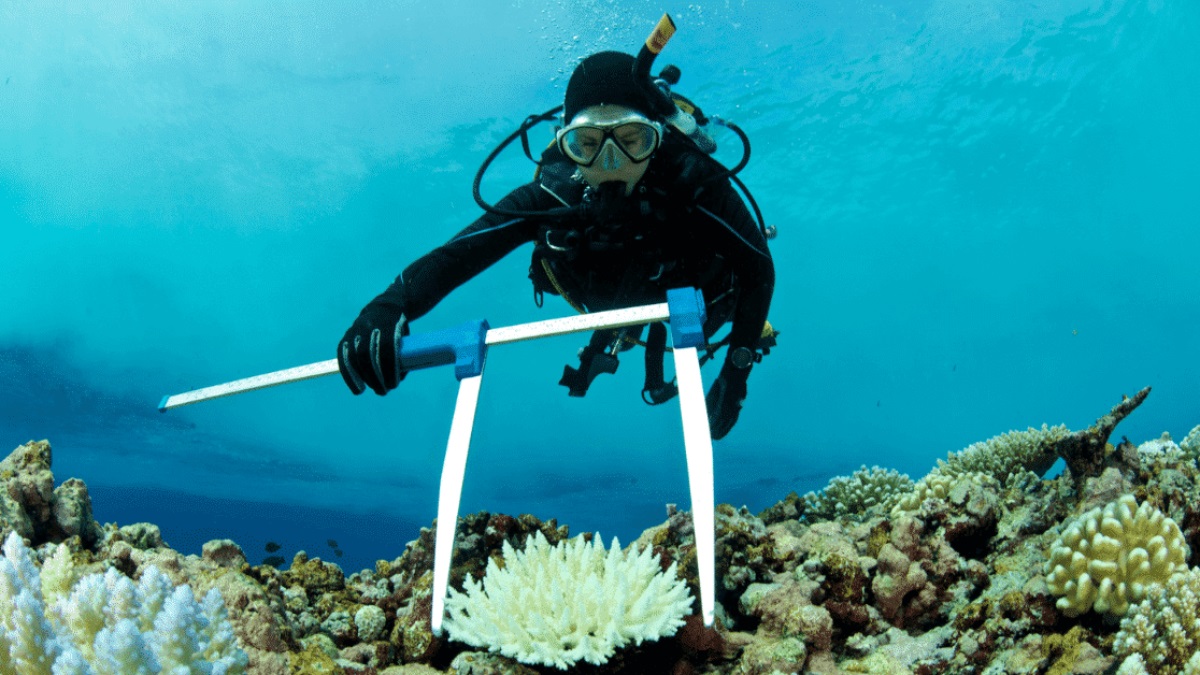
Marine biology is a fascinating field that delves into the study of the diverse life forms inhabiting our planet’s oceans and seas. From microscopic phytoplankton to majestic whales, marine biologists explore the complexities of marine ecosystems and the creatures that call them home. In this article, we’ll dive into 10 captivating facts about marine biologists, shedding light on the crucial work they do, the challenges they face, and the incredible discoveries they’ve made. Whether you’re an aspiring marine biologist, a nature enthusiast, or simply curious about the wonders of the ocean, these insights will offer a deeper understanding of the dedicated individuals who unravel the mysteries of the underwater world.
Key Takeaways:
- Marine biologists study different aspects of marine life, from fish to microorganisms, using cool tech like underwater drones and DNA analysis to explore and protect ocean ecosystems.
- They’re like ocean superheroes, working in tough conditions to discover new medicines, educate others, and push for policies that protect marine life and habitats.
Marine biologists explore the mysteries of the deep blue sea
Marine biologists are scientists who study the diverse and fascinating world of marine life. They play a crucial role in understanding and conserving the delicate balance of ocean ecosystems. Let’s delve into 10 intriguing facts about these dedicated professionals.
Marine biologists can specialize in various areas
Marine biologists can specialize in different areas such as ichthyology (the study of fish), marine mammalogy (the study of marine mammals), marine microbiology, marine conservation, and marine ecology. Their expertise contributes to our understanding of the complex interactions within ocean environments.
They conduct research in diverse locations
Marine biologists conduct research in a wide range of locations, from tropical coral reefs to the frigid polar seas. Their work takes them to coastal areas, open oceans, and deep-sea habitats, providing valuable insights into the rich biodiversity of marine ecosystems.
Marine biologists play a vital role in conservation
Marine biologists are at the forefront of efforts to conserve and protect marine species and their habitats. Through their research and advocacy, they strive to address environmental challenges such as pollution, overfishing, and climate change, aiming to safeguard the oceans for future generations.
They use advanced technologies in their research
Marine biologists utilize cutting-edge technologies such as underwater drones, satellite imaging, and DNA analysis to study marine life. These tools enable them to explore remote and inaccessible areas, uncovering new discoveries and enhancing our understanding of marine ecosystems.
Marine biologists contribute to medical advancements
Marine organisms have yielded valuable compounds with potential medical applications. Marine biologists investigate the bioactive compounds produced by marine organisms, offering insights that could lead to the development of new pharmaceuticals, including antibiotics and anti-cancer drugs.
They collaborate with interdisciplinary teams
Marine biologists often collaborate with experts from diverse fields such as oceanography, climatology, genetics, and engineering. This interdisciplinary approach fosters innovative research and solutions to complex challenges, enriching our knowledge of the oceans and their inhabitants.
Marine biologists face unique challenges
Working in marine environments presents unique challenges, including rough weather conditions, technical difficulties, and logistical obstacles. Despite these challenges, marine biologists are driven by their passion for marine life and their commitment to unraveling the mysteries of the ocean.
They play a crucial role in education and outreach
Marine biologists engage in educational initiatives and public outreach, sharing their knowledge and enthusiasm for marine conservation with students and the broader community. By inspiring future generations, they contribute to raising awareness about the importance of ocean stewardship.
Marine biologists advocate for policy changes
Marine biologists advocate for evidence-based policy changes to address pressing marine conservation issues. Their expertise and research findings inform policymakers and contribute to the development of effective strategies for protecting marine ecosystems and biodiversity.
These 10 Marine Biologists Facts showcase the diverse and impactful work of marine biologists, highlighting their vital contributions to the exploration and preservation of the world’s oceans.
Conclusion
Marine biology is a fascinating field that offers valuable insights into the complex and diverse ecosystems within our oceans. The work of marine biologists is crucial for understanding and preserving marine life, as well as addressing environmental challenges such as climate change, pollution, and overfishing. Through their research and conservation efforts, marine biologists play a vital role in protecting the delicate balance of marine ecosystems and ensuring the sustainability of our oceans for future generations. As we continue to explore and learn about the wonders of the underwater world, the dedication and expertise of marine biologists will remain essential in safeguarding the health and biodiversity of our oceans.
FAQs
What is the role of a marine biologist?
Marine biologists study ocean life, including plants, animals, and microorganisms, to gain a better understanding of marine ecosystems and the impact of human activities on the ocean environment.
What are some common research areas in marine biology?
Common research areas in marine biology include marine conservation, biodiversity, marine ecology, oceanography, and the effects of climate change on marine life.
How can someone become a marine biologist?
To become a marine biologist, one typically pursues a degree in marine biology, biology, or a related field, and gains hands-on experience through internships, research projects, and fieldwork in marine environments.
What are the biggest challenges facing marine biologists today?
Some of the biggest challenges facing marine biologists include habitat destruction, overfishing, pollution, ocean acidification, and the impact of climate change on marine ecosystems.
Why is the work of marine biologists important?
The work of marine biologists is crucial for understanding and protecting marine life, preserving biodiversity, and addressing environmental threats to the oceans, ultimately contributing to the sustainable management of marine resources.
Hungry for more captivating facts about the underwater world? Satisfy your curiosity by exploring surprising truths about marine biologists, uncovering the playful nature of whale sharks, and marveling at the incredible abilities of the black swallower fish. Each topic offers a unique glimpse into the awe-inspiring realm beneath the waves, sure to leave you with a newfound appreciation for the ocean's wonders. So, dive in and prepare to be amazed by the extraordinary creatures and dedicated professionals who call the sea their home.
Was this page helpful?
Our commitment to delivering trustworthy and engaging content is at the heart of what we do. Each fact on our site is contributed by real users like you, bringing a wealth of diverse insights and information. To ensure the highest standards of accuracy and reliability, our dedicated editors meticulously review each submission. This process guarantees that the facts we share are not only fascinating but also credible. Trust in our commitment to quality and authenticity as you explore and learn with us.


